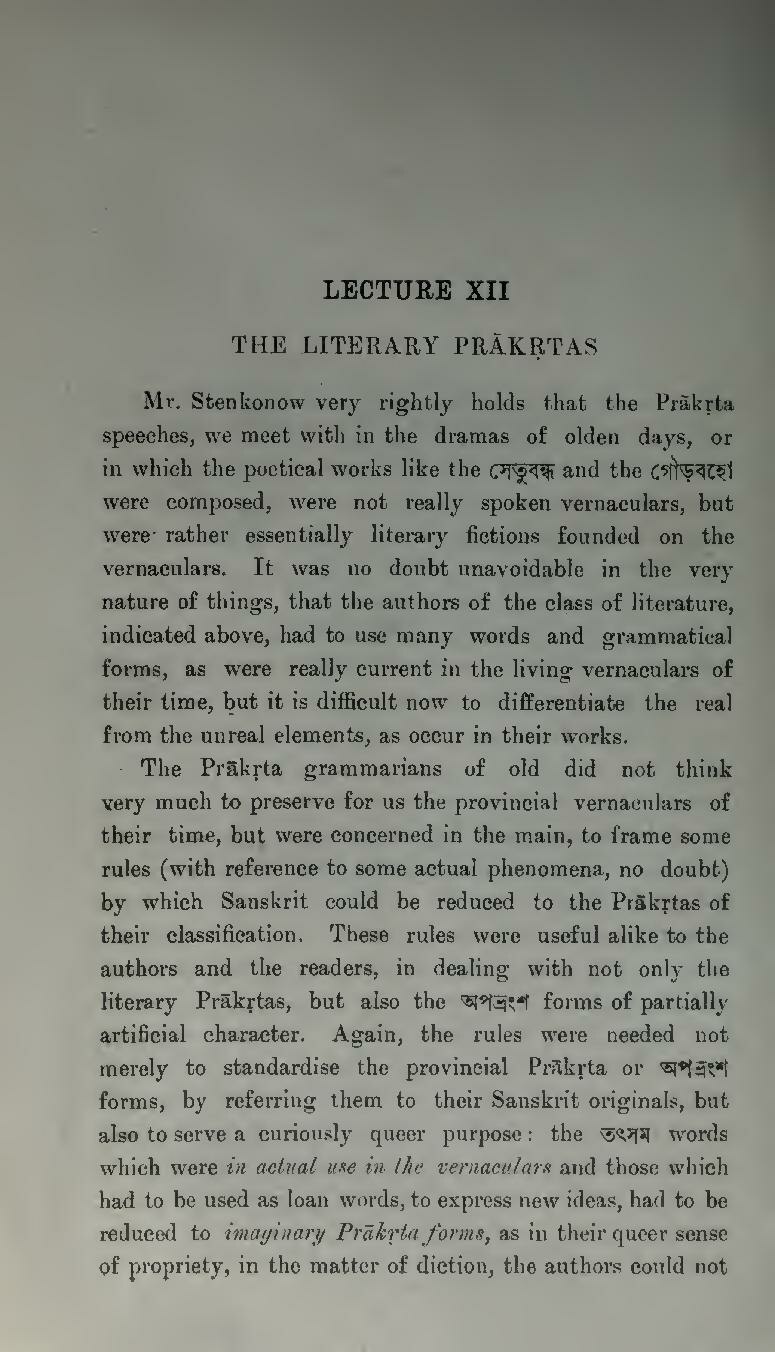LECTURE XII
The Literary Prākṛtas
Mr. Stenkonow very rightly holds that the Prākṛta speeches, we meet with in the dramas of olden days, or in which the poetical works like the সেতুবন্ধ and the গৌড়বহো were composed, were not really spoken vernaculars, but were rather essentially literary fictions founded on the vernaculars. It was no doubt unavoidable in the very nature of things, that the authors of the class of literature, indicated above, had to use many words and grammatical forms, as were really current in the living vernaculars of their time, but it is difficult now to differentiate the real from the unreal elements, as occur in their works.
The Prākṛta grammarians of old did not think very much to preserve for us the provincial vernaculars of their time, but were concerned in the main, to frame some rules (with reference to some actual phenomena, no doubt) by which Sanskrit could be reduced to the Prākṛtas of their classification. These rules were useful alike to the authors and the readers, in dealing with not only the literary Prākṛtas, but also the অপভ্রংশ forms of partially artificial character. Again, the rules were needed not merely to standardise the provincial Prākṛta or অপভ্রংশ forms, by referring them to their Sanskrit originals, but also to serve a curiously queer purpose: the তৎসম words which were in actual use in the vernaculars and those which had to be used as loan words, to express new ideas, had to be reduced to imaginary Prākṛta forms, as in their queer sense of propriety, in the matter of diction, the authors could not
